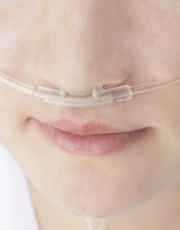Oxygen Concentrators: Supporting Your Child’s Breathing Needs
As a parent, your child’s health and well-being are always top priorities. If your child has been diagnosed with a respiratory condition that requires supplemental oxygen, an oxygen concentrator can be a vital tool in managing their health.
Let’s explore what oxygen concentrators are, how they can help your child, and what you need to know about insurance coverage and safety.
Understanding Oxygen Concentrators
An oxygen concentrator is a medical device that takes in ambient air, filters out other gases, and delivers concentrated oxygen to the user through a nasal cannula or mask.
This pure oxygen helps children with respiratory issues maintain adequate oxygen levels in their blood, which is essential for their overall health and development.
There are two main types of oxygen concentrators:
Stationary Concentrators:
These larger units are designed for home use and plug into an electrical outlet. They can provide a continuous flow of oxygen and are ideal for children who require oxygen therapy throughout the day and night.
Portable Concentrators:
Smaller and more mobile, portable concentrators run on rechargeable batteries and can be carried in a backpack or on a wheeled cart. They offer greater flexibility for children who need oxygen therapy but also want to maintain an active lifestyle, attend school, and participate in social activities.
The Benefits of Oxygen Concentrators for Children
Oxygen concentrators can significantly improve the quality of life for children with respiratory conditions such as asthma, cystic fibrosis, or chronic lung disease. By providing a steady supply of pure oxygen, these devices can help:
- Ease breathing difficulties and reduce shortness of breath.
- Increase energy levels and reduce fatigue.
- Improve sleep quality and overall well-being.
- Support healthy growth and development.
- Enable children to engage in physical activities and social interactions.
Navigating Insurance Coverage
If your child’s doctor has prescribed an oxygen concentrator, you may have concerns about the cost and insurance coverage. Medicaid, a government health insurance program, often covers the expense of oxygen concentrators for children who meet the medical criteria.
Inogen, a well-known brand of oxygen concentrators, offers both stationary and portable models that are reliable and user-friendly. If your child’s healthcare provider recommends an Inogen concentrator, Medicaid may assist with the cost.
Your child’s doctor and medical equipment provider can guide you through the process of obtaining the necessary equipment and navigating insurance coverage.
You can also refer to Is Inogen Covered by Medicaid? – MainClinicSupply Newsroom for more information.
Ensuring Safe and Effective Use
When using an oxygen concentrator for your child, it’s crucial to follow the guidance of their healthcare provider. They will prescribe the appropriate oxygen flow rate and duration of use based on your child’s specific needs. Some key safety tips include:
- Regularly maintain and clean the equipment according to the manufacturer’s instructions.
- Keep the concentrator away from heat sources, open flames, and flammable materials.
- Ensure your child uses the nasal cannula or mask as directed and reports any discomfort.
- Schedule regular follow-up appointments with your child’s doctor to monitor their oxygen levels and adjust treatment as needed.
Supporting Your Child’s Health and Happiness
An oxygen concentrator can be a valuable tool in managing your child’s respiratory health, allowing them to breathe easier, overcome sleep issues, feel better, and enjoy a more active and fulfilling life. By working closely with your child’s healthcare team, you can ensure that they receive the support and treatment they need to thrive.
Remember, while an oxygen concentrator is an important medical device, it doesn’t define your child. Encourage them to pursue their interests, engage with friends and family, and maintain a positive outlook.
With your love, guidance, and the right medical support, your child can navigate their health challenges and embrace all the joys of childhood.




